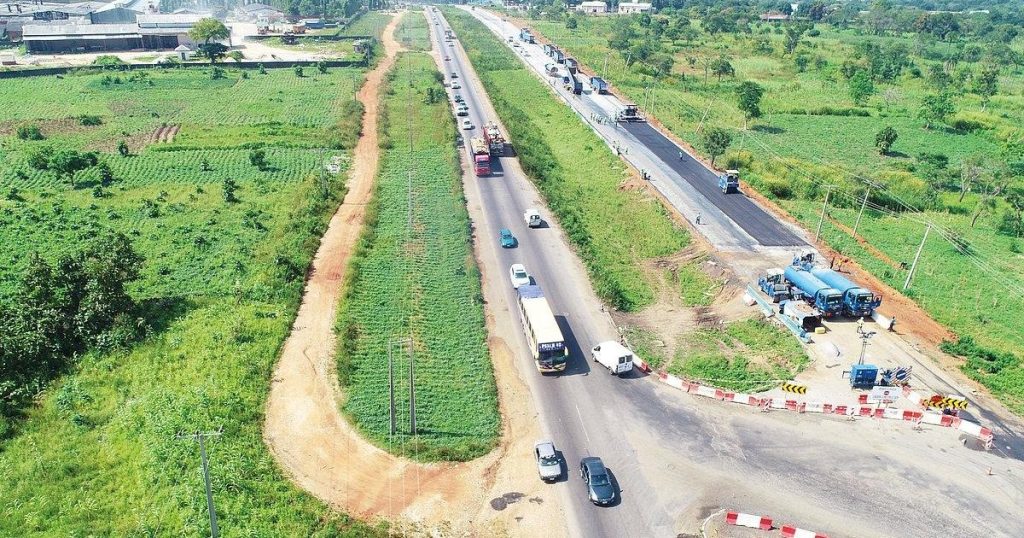The Nigerian Federal Government has issued a stern ultimatum to Julius Berger, a prominent construction firm, to accept a revised proposal of N740.79 billion for the completion of the Abuja-Kaduna-Zaria-Kano road’s Section II rehabilitation within seven days, or face contract termination. The ultimatum was given by the Minister of Works, David Umahi, during a courtesy visit from the company’s new Managing Director, Dr. Pier Lubasch, and the outgoing Managing Director, Dr. Lars Richter. The project, which was initially awarded in 2018 during the administration of former President Muhammadu Buhari, has been mired in delays, leading to a call for immediate resolution of the ongoing negotiations that have extended for an unacceptably long duration.
Umahi emphasized that the slow progress on the Abuja-Kaduna section, which has only achieved 27% completion over six years, is unacceptable, especially in light of the substantial completion of the Kaduna-Zaria and near-finished status of the Zaria-Kano sections. He further criticized Julius Berger for allegedly “playing politics” with the project, implying that the contractor’s delays were affecting the current administration’s reputation and causing undue hardship for road users. The minister expressed frustrations over the contractor’s hesitance to mobilize despite funds being approved by the Federal Executive Council, highlighting the government’s desire to ensure that infrastructure development remains on track for the benefit of its citizens.
The Minister’s tone indicated a sense of urgency and impatience, stressing that continuing delays are detrimental to the Ministry of Works and the Nigerian populace. Therefore, he demanded a definitive response from Julius Berger regarding the revised contract sum, asserting that the government cannot be held hostage by unrealistic demands from contractors. The initial amount was N710 billion, which has now inflated to N740 billion due to the lengthy negotiations. Umahi pointed out that the construction industry must adapt and adjust to the country’s prevailing economic conditions while ensuring value for money.
Umahi also reflected on previous instances where contracts with Julius Berger had been terminated due to site abandonment, underscoring the government’s commitment to addressing the dissatisfaction of citizens affected by the stalled project. He echoed the sentiment that Nigerian citizens are growing increasingly frustrated with infrastructure inadequacies, implicating the construction firms in the nation’s economic progress and development. As a result, he urged all construction firms associated with the Ministry of Works to adopt a more realistic and collaborative approach toward contract negotiations and viability.
The new Managing Director of Julius Berger, Dr. Pier Lubasch, committed to promptly addressing the matters raised by the Minister and expressed hope for a consensus to be reached, thereby revitalizing the stalled project. The outgoing Managing Director, Dr. Lars Richter, emphasized that the visit’s primary purpose was to introduce Lubasch to the Minister. The interaction marked an essential moment as it revealed the critical crossroads at which the project stands, as it beckons a resolution that would either enhance infrastructure development or result in further contract disputes that impede progress.
As a final note, the looming ultimatum and its implications underscore the pressing need for contractors to align with the government’s infrastructural goals and the urgent necessity to fulfill project commitments in a timely fashion. The infrastructure sector in Nigeria bears immense significance for the economic renaissance the nation seeks, and it stands as a testament to the interconnectedness of governance, accountability, and development. The coming days will determine not only the fate of this project but also reflect broader themes of governance and efficiency in public-private partnerships in Nigeria.


